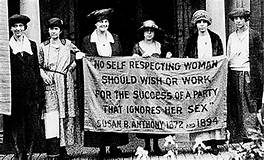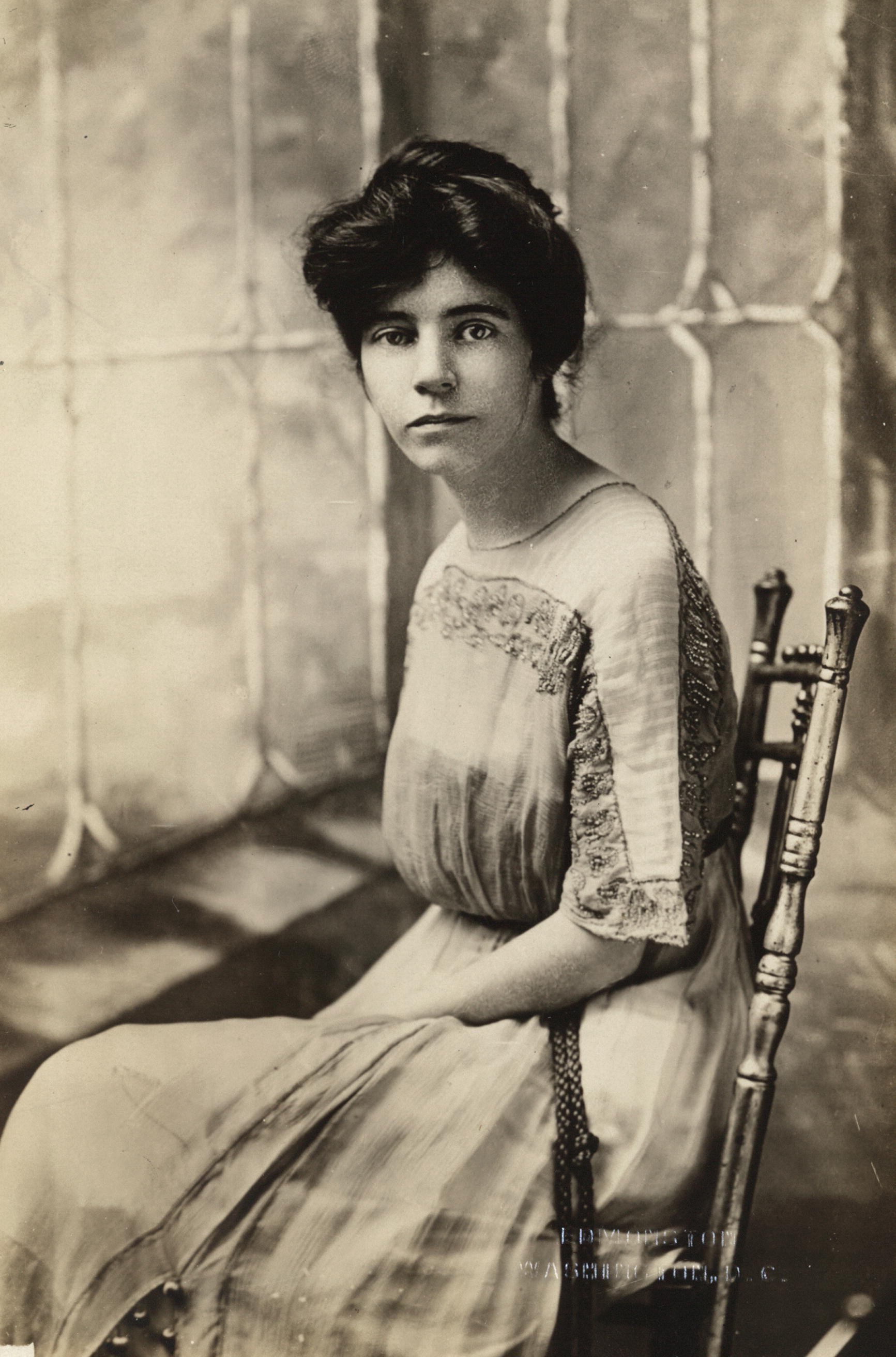The Women's Suffrage Movement
100th Anniversary
The women’s suffrage movement was a decades-long fight to win the right to vote for women in the United States. It took activists and reformers nearly 100 years to win that right, and the campaign was not easy: Disagreements over strategy threatened to cripple the movement more than once. But on August 18, 1920, the 19th Amendment to the Constitution was finally ratified, enfranchising all American women and declaring for the first time that they, like men, deserve all the rights and responsibilities of citizenship.

* Source: https://www.history.com/topics/womens-history/the-fight-for-womens-suffrage
Alice Paul

Alice Paul: One of the often unsung heroines of this movement.
Alice Stokes Paul was Born in 1885 and raised in a Quaker home in Paulsboro (near Moorestown, NJ). Eldest of four children of William Mickle Paul and Tacie Paul, and a descendant of William Penn, Quaker founder of Pennsylvania, Alice grew up in the Quaker tradition of public service. She attended Moorestown Friends School, where she graduated at the top of her class.
Starting in 1901, Alice studied at Swarthmore College, an institution co-founded by her grandfather. At Swarthmore, she was a member on the Executive Board of the Student Government. She graduated in 1905 with a bachelor's degree in biology. In 1907, she earned a Master of Arts from the University of Pennsylvania, completing coursework in political science, sociology and economics.
Alice continued her studies in Birmingham, England, at the Woodbrooke Quaker Study Centre, and later moved to London to study sociology and economics at the London School of Economics. While in England, Alice joined the Women's Social and Political Union (WSPU), a militant suffrage group. She was arrested repeatedly during suffrage demonstrations and served three jail terms.
In 1910, Alice returned from England and continued her studies at the University of Pennsylvania, earning a Ph. D. in sociology. Her dissertation, entitled The Legal Position of Women in Pennsylvania, discussed the history of the women's movement in Pennsylvania and the rest of the U.S., and argued that women's suffrage was the key issue of the day.
During the time she was imprisoned in London, Paul learned the tactics of civil disobedience from Emmeline Pankhurst. Chief among these tactics was demanding to be treated as a political prisoner upon arrest. This sent a message about the legitimacy of the suffragists to the public and also provided tangible benefits during the prison term.
The disobedience tactic of hunger striking gained Alice early release from her first two prison terms. But force-feeding during her third term resulted in severe gastritis that permanently damaged her health.
Source: https://en.wikipedia.org/wiki/Alice_Paul
For more information, watch this video of Mary Walton speak about Alice Paul and Mary's book "A Women's Crusade: Alice Paul and the Battle for the Ballot"

https://youtu.be/5GDe4DkZN2A
https://www.youtube.com/watch?v=mgY_8QwZX4s
https://youtu.be/JxdHe-55rqA
https://youtu.be/CECQVmT9CDU
David Miller, 12/17/2019